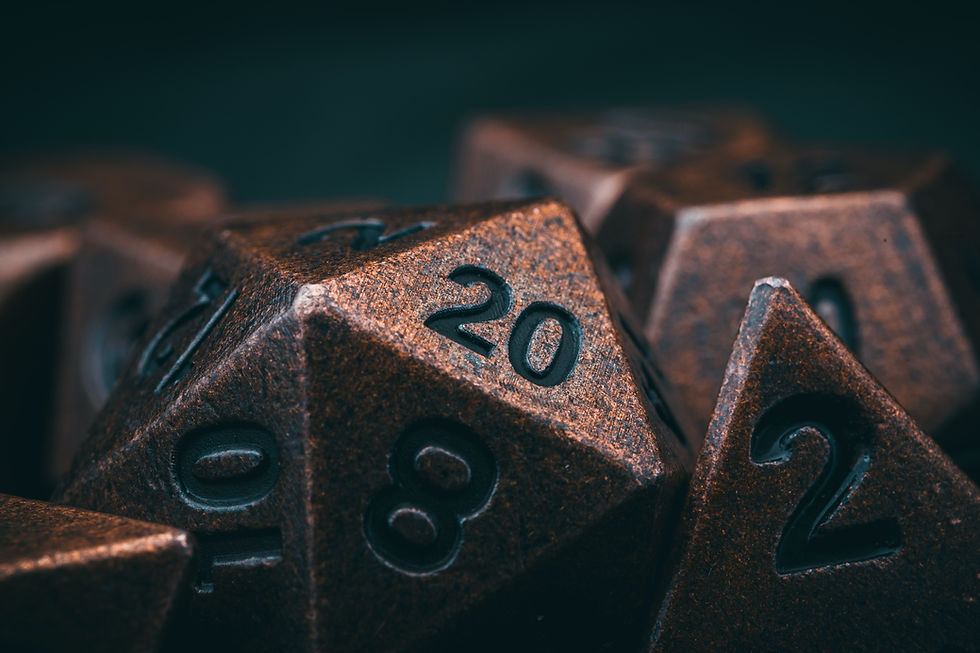Dungeons & Dragons: Thriving at Lang
- Jared Gniewek

- Jan 9, 2024
- 3 min read

The glow of the piles of gold coins reflecting the torchlight from the aged sconces dazzles your eyes. So much, in fact, that you barely see the jerking staccato movements in the back corner of the chamber. The clockwork troll has been awakened by your careless mucking about for treasure. It roars like the work whistle at the opening of the Flintstones and races across the chamber towards you, sending treasure flying. Do you hold the ancient key that renders it harmless or will you attempt to best the mechanical beast some other way?
I’ve been playing Dungeons & Dragons since 1983. First, with family, and then with friends, and as I grew older, with the incredible people for whom there is no finer hobby. We are a rare breed, and it was always hard to find a group of people who liked to play…much less in a preferred style. Not so at Lang. D&D is THRIVING here. The after school program has become so popular this year that we had to bring in a second Dungeon Master (The Great Scout). Some students are just trying it out and some are “lifers”. Roughly one in five of our students are engaged with the after school program here. Others are playing independently and check in to chat about their games here and there. I facilitate a Friday session for the lower school during our Kidworks sessions that strips many of the more unwieldy rules away and runs as more of a freeform story within a persistent world based on the lore of the game.

I couldn’t begin to explain the appeal in clinical terms, but I certainly have thoughts as to the benefits and joys of participation. At the beginning of the year, I sat down with Tucker (our Executive Functioning Coach) and discussed the myriad ways it reinforces so many of the skills we are working on improving with our population. From flexible thinking, improvisation, planning, and prioritizing tasks to just plain whimsical fun the game really covers the gamut!

Cartoonish action violence, in the chaos of the modern world, can feel cathartic. To have agency in the context of an amplified reality through fantasizing about larger than life deeds carried out by the strangest avatars imaginable can be empowering and invigorating. In the context of the structures of being a student and child, playing a character in the game offers liberation and escapism. Going further, as some of our students have, into the role of Dungeon Master and dictating the tensions of a fabricated world is a huge responsibility and I love seeing some of the players stepping into that position. Watching Lang students confidently dictating the setting and story is a rare treat. They truly shine in those moments.

Socially speaking, the game acts as a sort of neutral ground. Students who don’t engage with each other or interact normally come together and put their differences aside to play together. Not to say that there is never tension in the side conversations or in-game decision making, but I see the cooperation between the players and respectful deference to the Dungeon Master’s rulings prove positive that these students have the potential to navigate the adult world.

I couldn’t be more excited about the engagement and delight I’m seeing as we tell corny jokes, spread Cheet-O dust across our character sheets and rewrite the laws of the universe, 1 20-sided dice at a time.






Comments